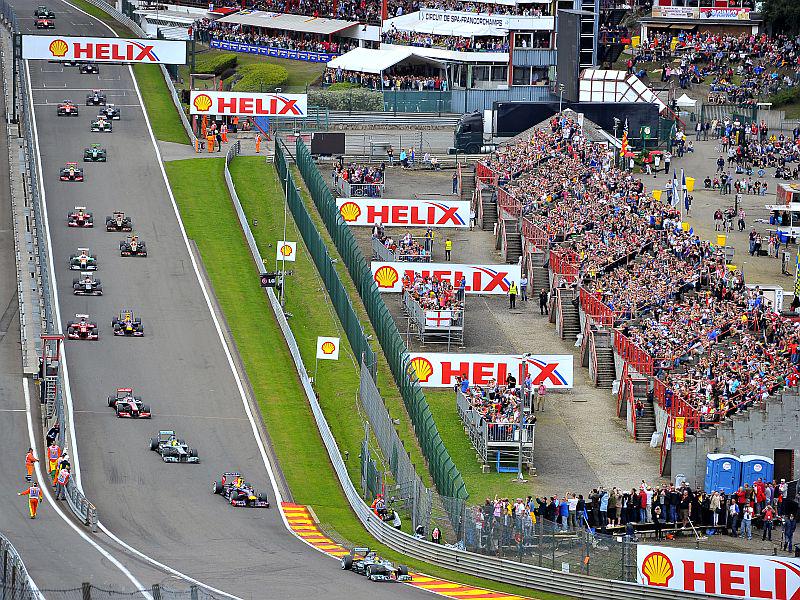Since I started analysing the reactions to the high-class automobile racing, there’s always been something wrong. Remarks which I’ve collected over the years are, as a rule, categorized as follow (you can, of course, add your own category):
- everything is boring,
- everything is decided in advance,
- there are too many decisions made in pit lanes,
- overtakings take place merely in pit lanes,
- changes of the rules are killing Formula 1,
- the most recent real racer was Senna (*); now the racers are just pushing the buttons,
- first and foremost, everything was better in the past.
Why should changes be introduced at all? The answer is logical and suggest itself – in order to fight against monotony. If the aim of science is to predict everything correctly, the desires and motives of the leading men of Formula 1 are quite the contrary – to offer the most unpredictable races with unexpected endings and winners. Predictability makes ratings fall; as a result, the revenues go down. Of course, this is not what the leading men want. If monotony lasts too long, it needs to be broken with a little help. By introducing new rules and regulations. This is how a decade ago (also) the superiority of Ferrari was stopped, and this year of Red Bull.
Nothing is actually wrong with this. The shuffled cards push other names to the top, unintentionally suggesting to a greater extent that the racer’s talent has never been the most important, decisive factor in struggles for the title of world champion. Material has always been the most important factor. Always. If you wanted to find out who the best driver is, you would simply have to seat all racers in the same car, so they would have to drive in the same circumstances. This is how you could make a comparison between the racers, based on their talent, natural speed, or anything similar.
And what about the fans’ resentment? Nothing is different this year. At the moment, most remarks are made about (too) quiet engine sounds and lower speed. The latter is absolutely imaginary. A fan sitting on a couch cannot make judgements that the speed of 185kph is in fact much lower than 188kph (e.g. this is the difference in the average speed of this year’s and last year’s Malaysia Grand Prix). This is barely something that merely the racers are bothered.
I’ve actually found a few factors which benefit the interesting part of the present Formula 1. Do you remember Michael Schumacher’s times, when everything was decided by the qualifications, or – in the most exciting case – by overtaking in pit lanes? At present, there is considerably more overtaking in the lane. Instructions in pit lanes are given in order to prevent collisions between the racers of the same team and, consequently, avoid being awarded no points. However, this year it seems that there has never before been so much overtaking between the members of the same team. This is also the case with Mercedes. And it’s this magic, the uncertainty which benefits Formula 1. Nevertheless, I’m not saying that this is the golden era of Formula 1. No, not at all; we live in an era in which everything is (a priori) bad.
Resentment reminds me of the all-pervading social climate. This is the resentment, the common denominator of which is, as a rule, a reference to the past and an observation “how in the past everything was better – from economic indicators to young people who were not as deteriorated as they are now”. In reality, this is more about a psychological problem of comprehension of the past, which many people idealize so much although it was not that perfect or ideal. The same is true of various eras of Formula 1. None of them is distinctly more interesting or more fair. Only the distance in time can blur the objective comprehension of the past.
PS You can replace the asterisk (*) with Prost, Mansell, Berger, etc.


































































